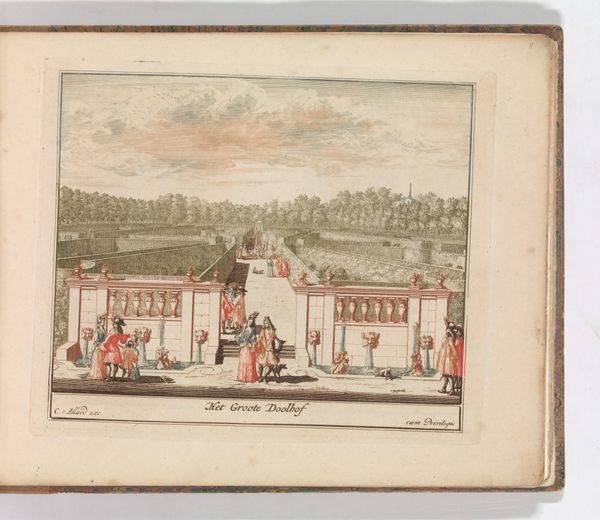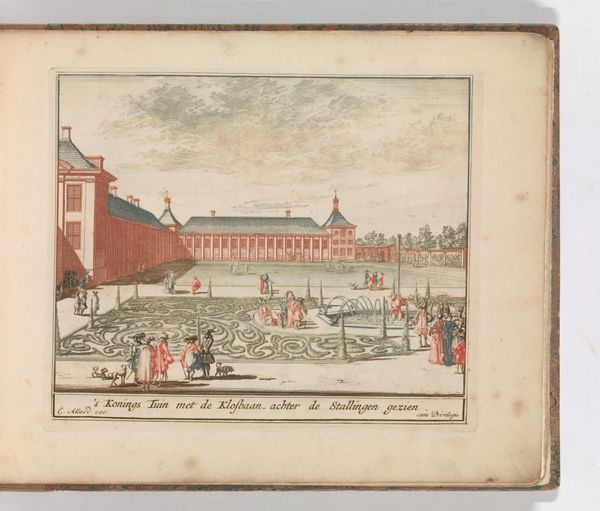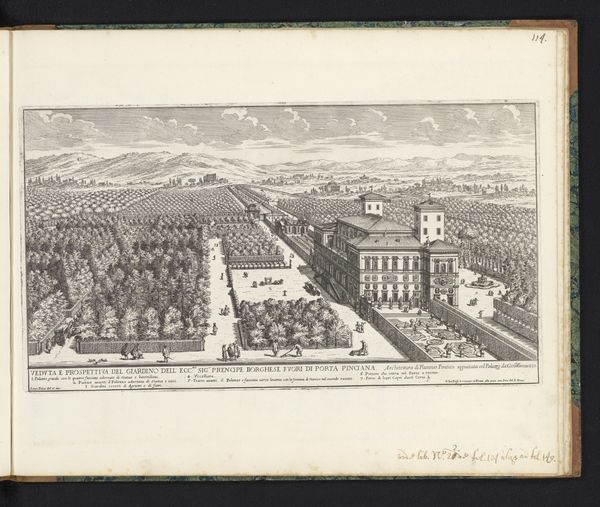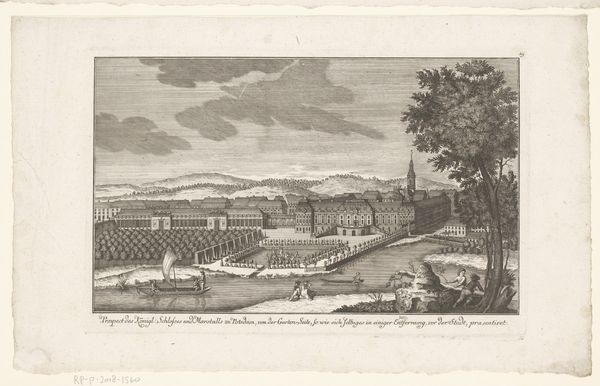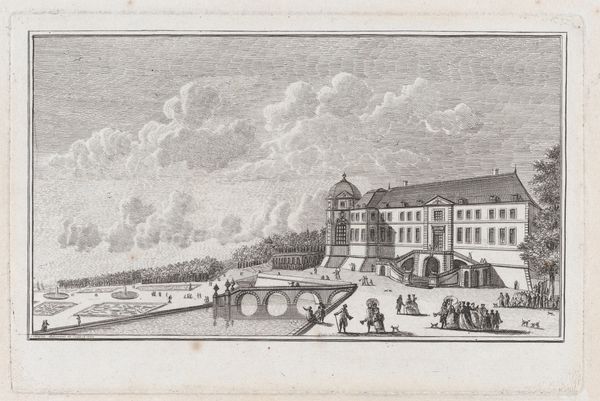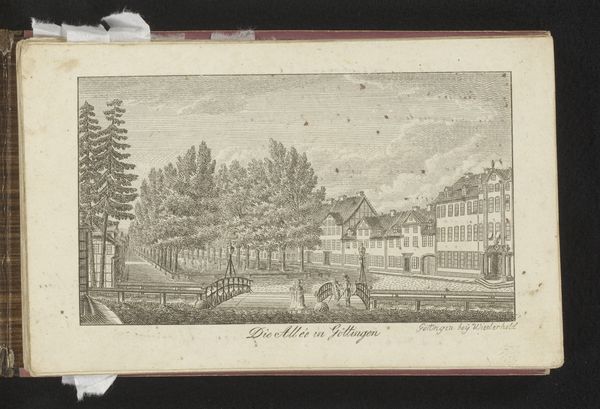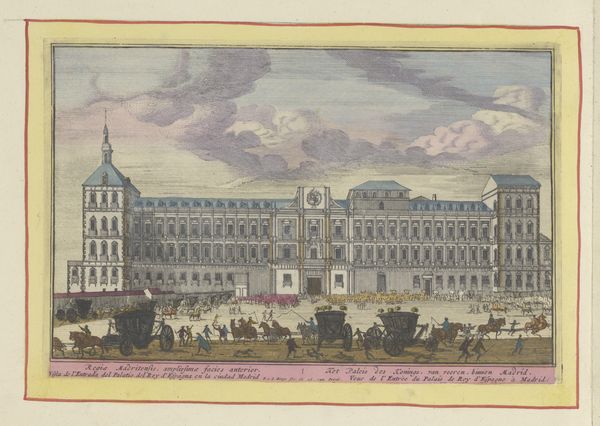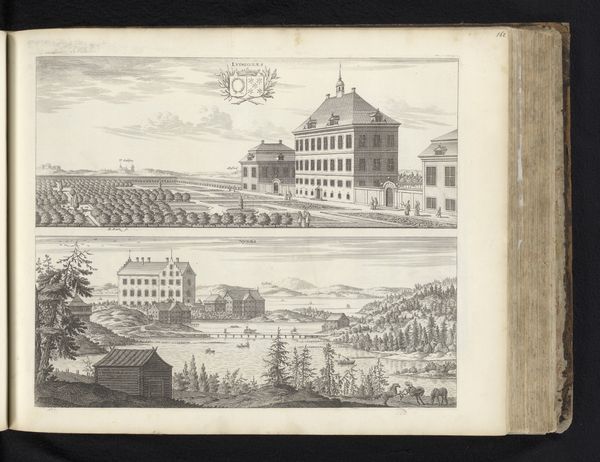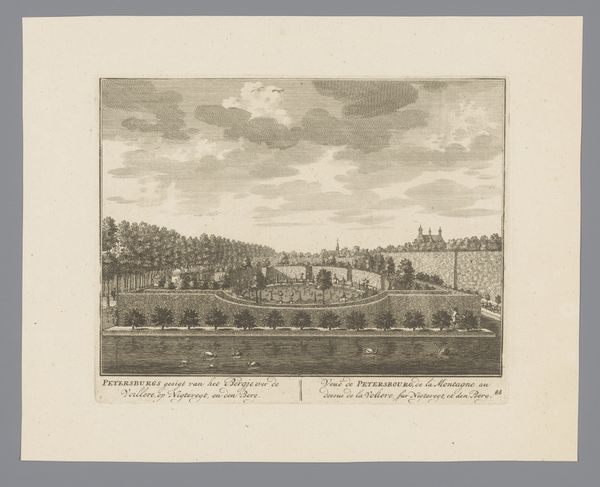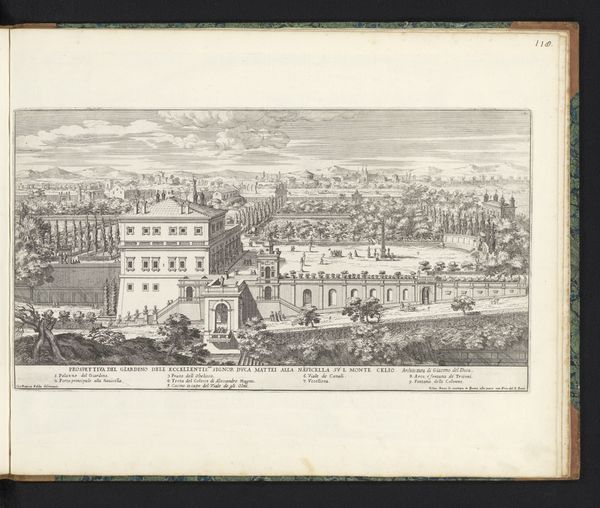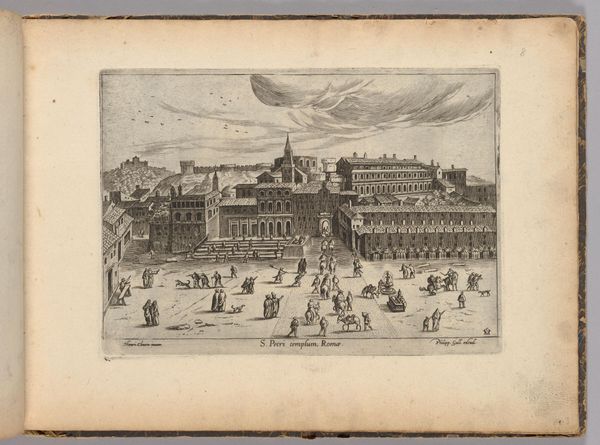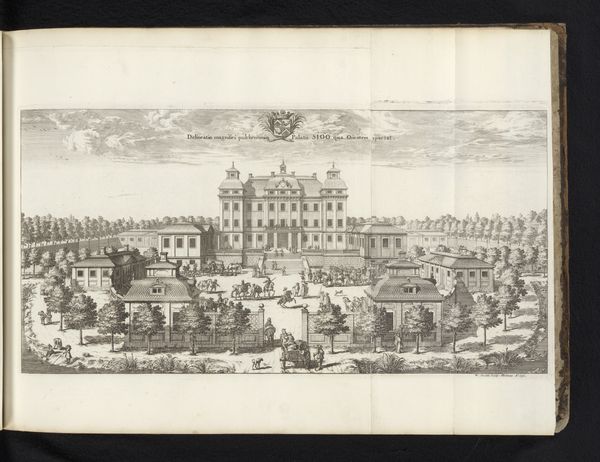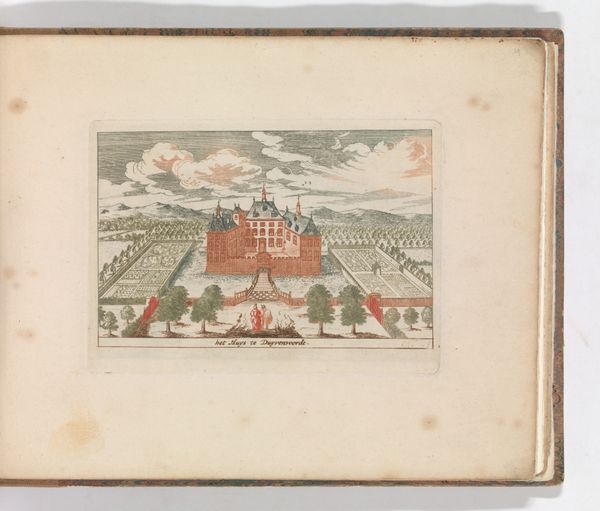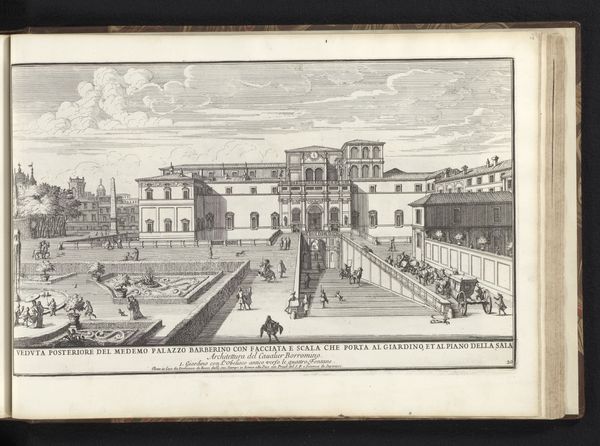
' ’De Koninginne Tuin met 't Groene Kabinet , en de Oranjerie, van Achteren gezien", in: Tooneel Der Voornaamste Nederlands Huizen, En Lust Hoven, Naar T Leven Afgebeeld 1660 - 1693
0:00
0:00
drawing, print
#
drawing
#
garden
#
baroque
# print
#
landscape
Dimensions: Plate: 6 3/4 × 8 1/16 in. (17.2 × 20.5 cm)
Copyright: Public Domain
Carel Allard created this print of the Queen’s Garden in the Netherlands in the late 17th century, published as part of a series depicting notable Dutch houses and gardens. Here, Allard showcases the geometric order imposed on nature by human design. The manicured garden with its symmetrical layout, fountains, and pruned shrubbery contrasts sharply with the untamed wilderness beyond. The figures strolling leisurely through the garden further emphasize the privilege and leisure associated with the aristocracy who commissioned such spaces. Made during the Dutch Golden Age, a period of immense economic prosperity and colonial expansion, this print reflects the values of a society that prized order, control, and the conspicuous display of wealth. The Oranjerie, or orangery, in the background was used for cultivating citrus fruits, which were a symbol of luxury and status. To truly understand this print, scholars consult estate records, garden design manuals, and social histories. These resources help us interpret the layers of meaning embedded within the image. The print becomes a window into the cultural values and social hierarchies of the Dutch elite.
Comments
No comments
Be the first to comment and join the conversation on the ultimate creative platform.
